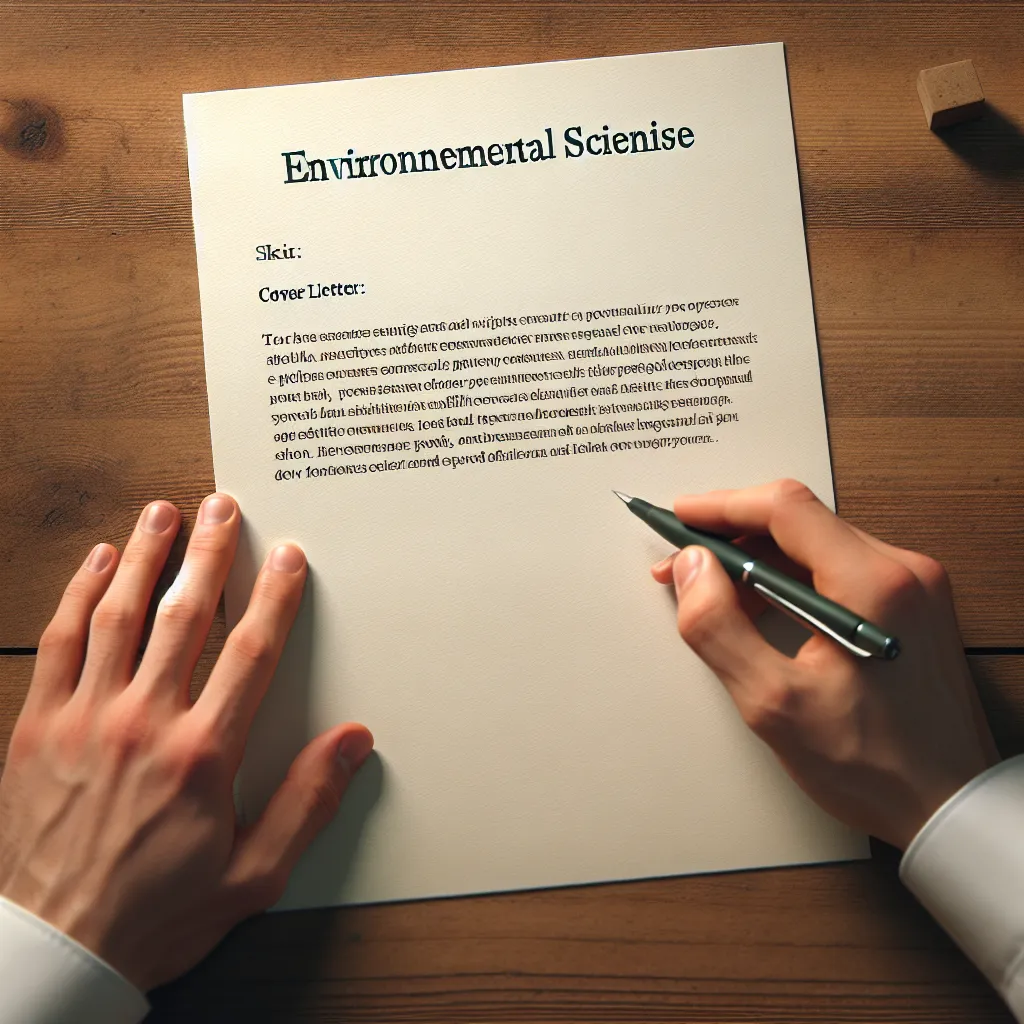Why a Great Cover Letter Matters for Environmental Scientists
In the competitive field of environmental science, a well-crafted cover letter is more than just a formality; it’s your first opportunity to make a lasting impression and showcase your unique qualifications. It serves as a crucial introduction, allowing you to go beyond the concise information presented in your resume and provide a compelling narrative of your skills, experiences, and aspirations. A strong cover letter demonstrates your genuine interest in the specific role and the company, highlighting your understanding of their mission and how your expertise aligns with their needs. It’s your chance to stand out from the crowd and convince the hiring manager that you are the ideal candidate for the position.
Highlighting Your Environmental Science Skills
Your cover letter should effectively communicate your core competencies, emphasizing both your technical and soft skills. Environmental science is a multifaceted field, requiring a blend of scientific knowledge, analytical abilities, and interpersonal skills. Focus on the skills most relevant to the job description, providing specific examples of how you’ve utilized these skills in previous roles or projects. This targeted approach helps demonstrate that you possess the necessary qualifications and are a strong fit for the position.
Technical Skills to Showcase
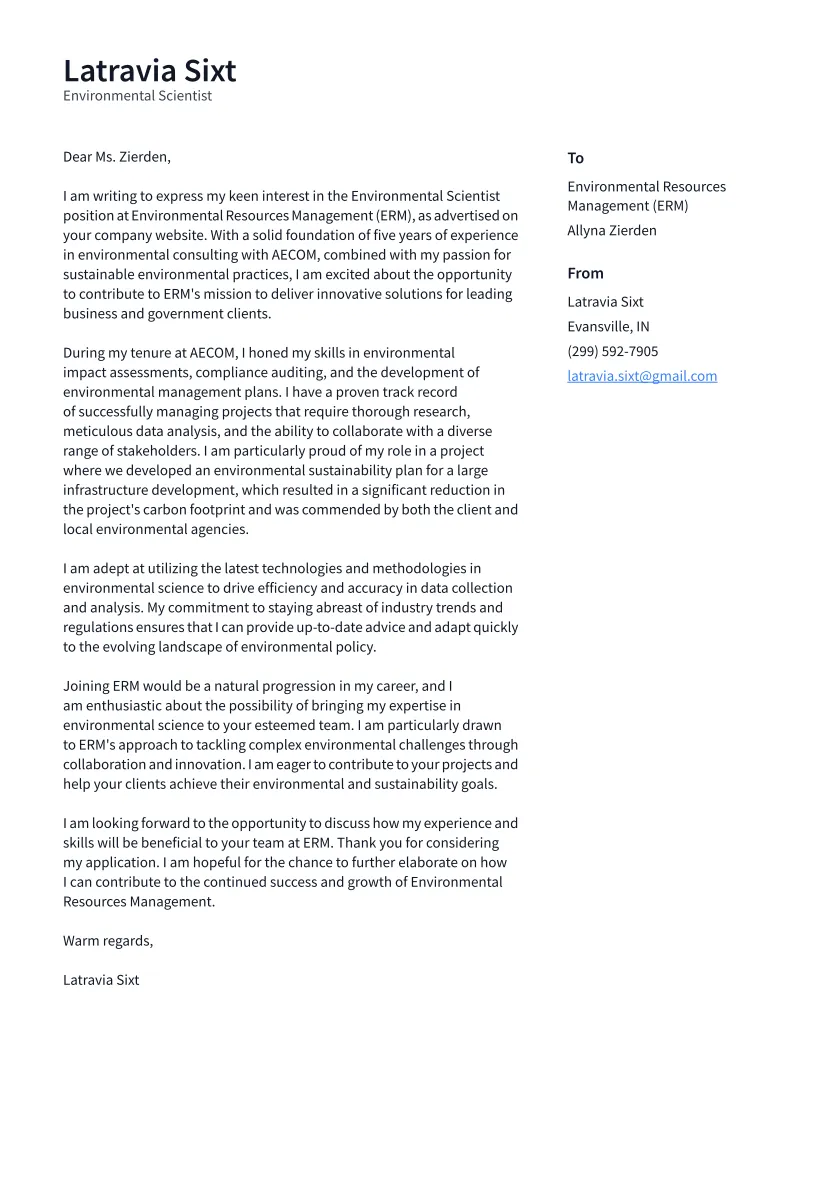
Technical skills are the backbone of any environmental scientist’s expertise. Highlight your proficiency in areas such as data analysis, environmental modeling, GIS (Geographic Information System) software, and laboratory techniques. If the job requires specific software or analytical methods, make sure to explicitly mention your experience with them. For instance, if the role involves water quality analysis, detail your experience with relevant testing procedures, equipment, and the interpretation of results. Remember to provide concrete examples of your application of these skills.
Soft Skills to Emphasize
Beyond technical skills, soft skills are essential for success in environmental science. Highlight your abilities in areas like communication, teamwork, problem-solving, and project management. Environmental projects often involve collaboration with diverse teams, requiring excellent communication skills to convey complex information clearly and concisely. Describe how you have successfully collaborated with colleagues, stakeholders, or regulatory agencies. Showcase your problem-solving skills by detailing how you’ve overcome challenges in previous projects, and demonstrate your ability to manage projects effectively, meeting deadlines and achieving objectives.
Showcasing Relevant Experience
Your cover letter is the perfect platform to elaborate on your professional experience, providing context and depth to your resume entries. Instead of simply listing job duties, focus on your accomplishments and the impact you made in previous roles. Describe the specific projects you worked on, your responsibilities, and the outcomes you achieved. Use the STAR method (Situation, Task, Action, Result) to structure your examples, providing a clear and concise narrative of your contributions and the positive results you delivered. This helps demonstrate your practical knowledge and ability to apply your skills in real-world scenarios.
Quantifying Achievements
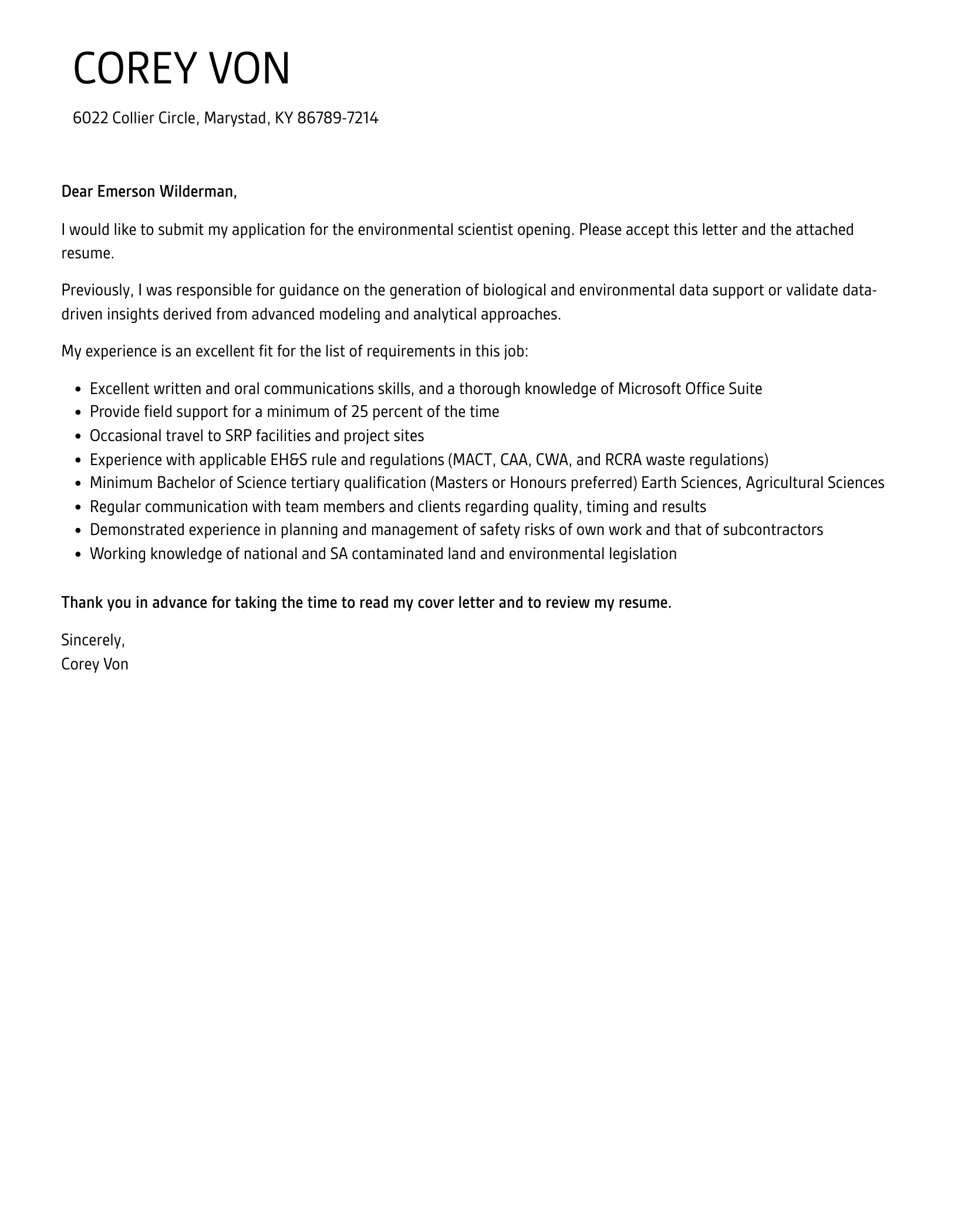
Quantifying your achievements adds significant weight to your cover letter. Whenever possible, use numbers, percentages, or specific data points to illustrate your accomplishments. Instead of saying, “Improved efficiency,” state, “Improved project efficiency by 15% through the implementation of new data analysis techniques.” This provides concrete evidence of your impact and demonstrates your ability to deliver results. Quantifiable achievements provide a clear indication of your capabilities and the value you can bring to the prospective employer.
Tailoring Your Letter to the Job
Generic cover letters are easily spotted and often discarded. Tailoring your letter to each specific job application is critical. This involves carefully reviewing the job description and identifying the key requirements and qualifications the employer is seeking. Customize your cover letter to highlight the skills and experiences that align with these requirements, demonstrating your understanding of the role and how you can contribute to the organization’s goals. This targeted approach significantly increases your chances of getting noticed and securing an interview.
Researching the Company and Role
Before writing your cover letter, conduct thorough research on the company and the specific role. Visit the company’s website, read their mission statement, and learn about their recent projects and initiatives. Understanding the company’s values and priorities allows you to tailor your letter to demonstrate how your skills and experiences align with their needs. Similarly, research the role in detail. Understand the responsibilities, required skills, and the challenges you might face. This knowledge will help you frame your letter effectively and showcase your genuine interest in the position.
Addressing the Specific Requirements
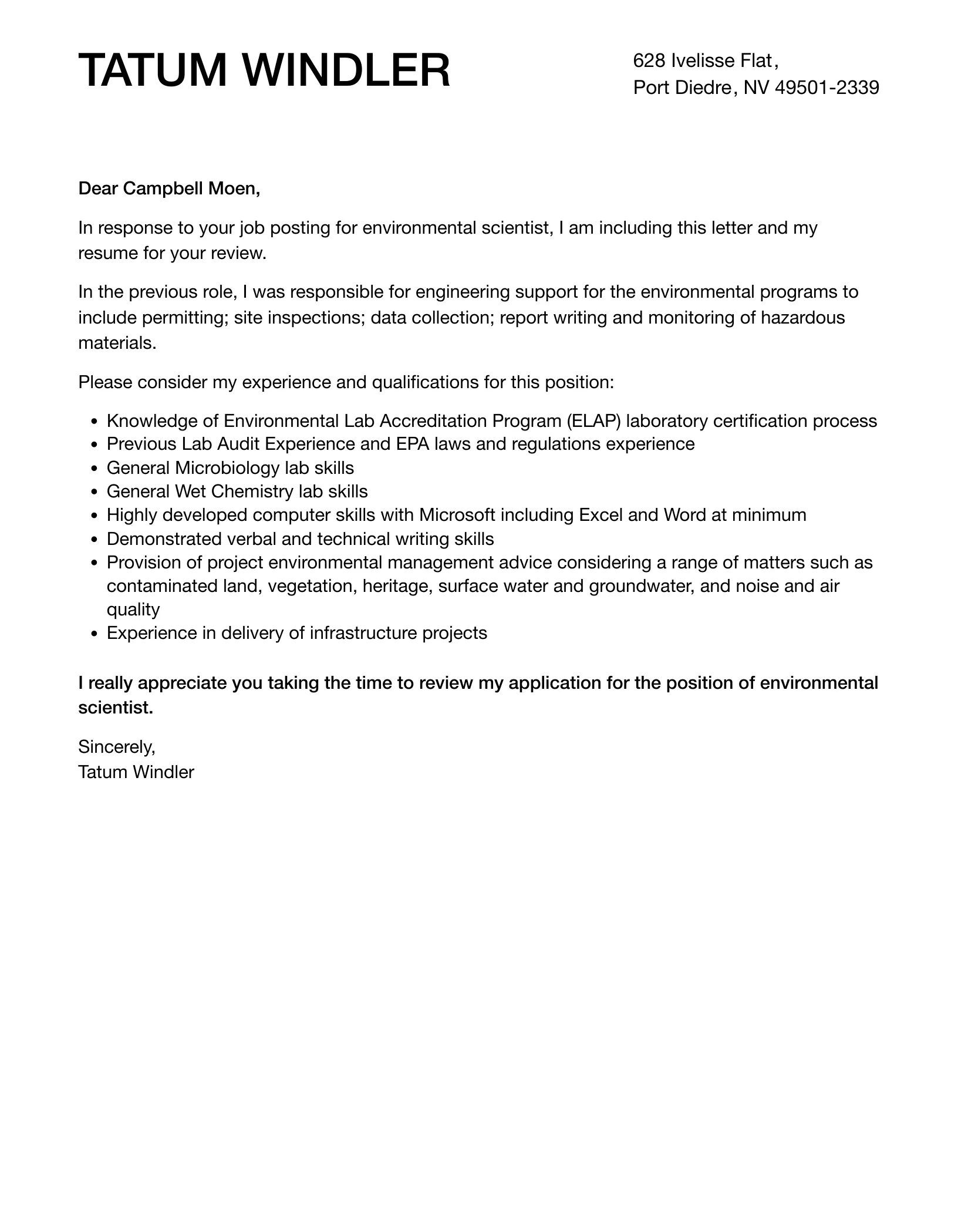
Carefully analyze the job description and address each of the specific requirements listed. If the job requires experience with a particular software, mention your proficiency and provide examples of how you’ve used it in the past. If the role requires specific certifications or licenses, highlight those credentials. By directly addressing the requirements, you demonstrate that you have read the job description carefully and understand the expectations of the role. This significantly increases your chances of being selected for an interview.
Formatting and Style Essentials
The formatting and style of your cover letter reflect your professionalism and attention to detail. Use a clean and easy-to-read font, such as Times New Roman, Arial, or Calibri. Ensure your letter is well-organized, with clear headings, paragraphs, and spacing. Keep the tone professional and concise, avoiding jargon or overly complex language. Proofread your letter carefully for any grammatical errors or typos, as these can detract from your overall presentation.
Professional Tone and Language
Maintain a professional tone throughout your cover letter. Use formal language and avoid slang or overly casual expressions. Show enthusiasm for the role and the company, but avoid being overly effusive. Be direct and concise in your writing, focusing on your key qualifications and experiences. Use strong action verbs to describe your accomplishments, and always maintain a positive and confident tone.
Proofreading and Editing
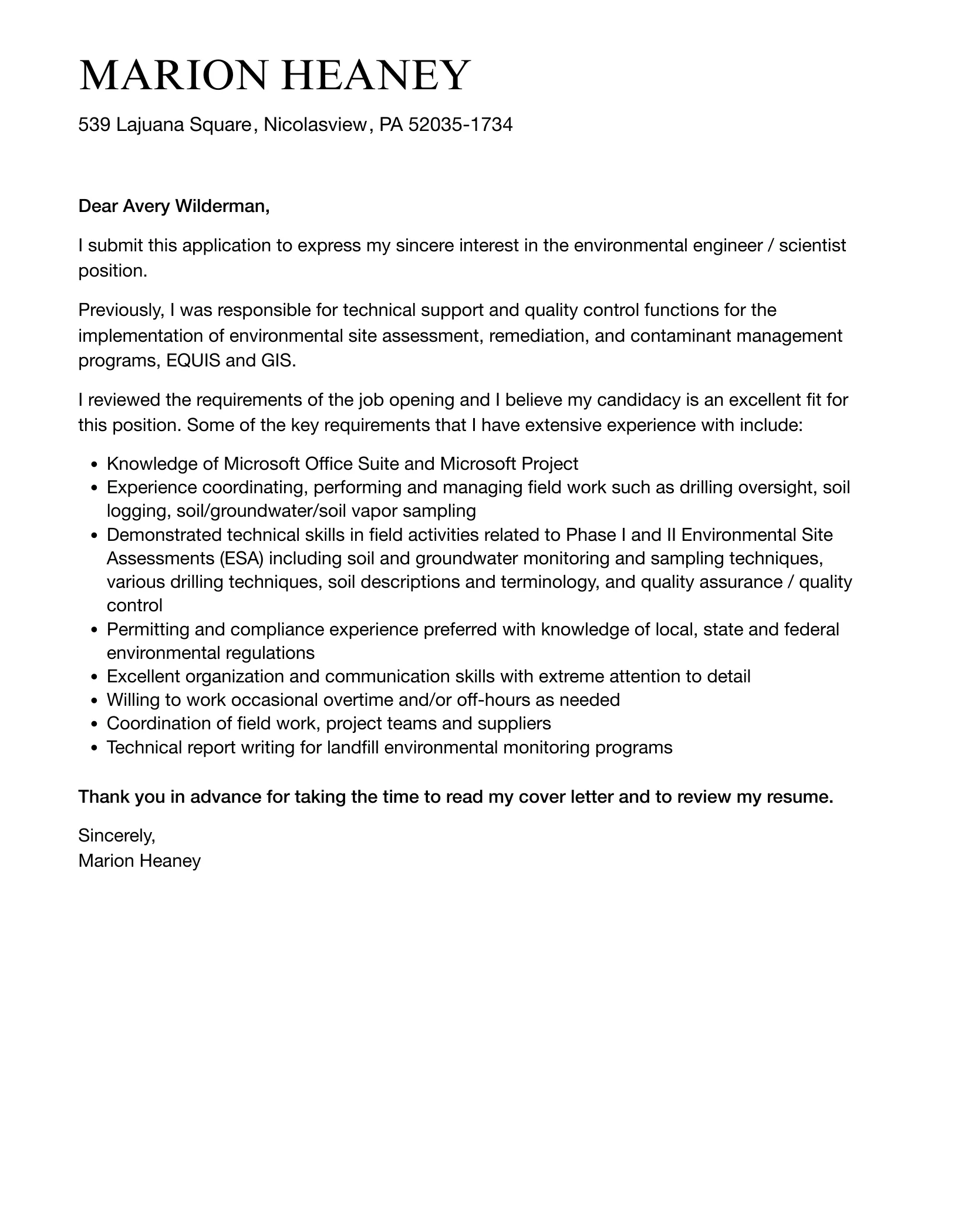
Proofreading and editing are critical steps in the cover letter writing process. Errors in grammar, spelling, or punctuation can create a negative impression and undermine your credibility. Carefully proofread your letter multiple times, and consider having a friend or colleague review it as well. Using spell-check and grammar-check tools is a good starting point, but they cannot catch all errors. Ensure that your cover letter is free of mistakes and presents you as a polished and professional candidate.
Top 5 Cover Letter Tips for Environmental Scientists
To summarize, here are the top 5 cover letter tips for environmental scientists, designed to help you create a compelling and effective cover letter that grabs the attention of hiring managers and increases your chances of securing an interview.
Focus on Key Skills and Experience
Highlight the skills and experiences that are most relevant to the specific job requirements.
Quantify Your Accomplishments
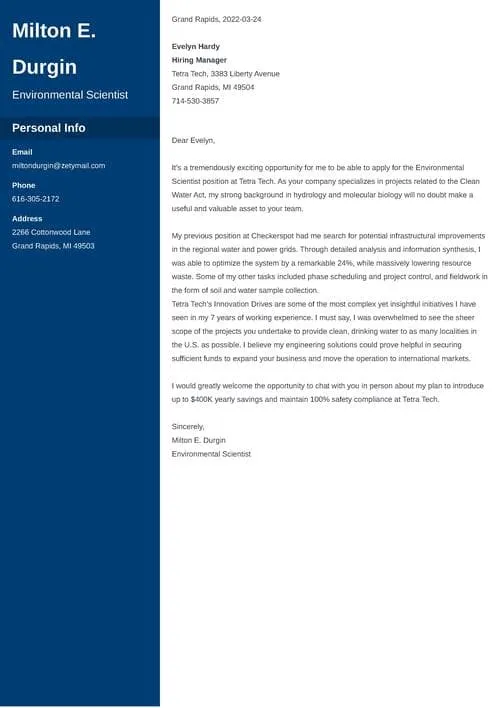
Use numbers and data to demonstrate your impact and achievements.
Customize for Each Application
Tailor your letter to each job, demonstrating your understanding of the role and the company.
Use Strong Action Verbs
Start each bullet point with strong action verbs to make your letter more impactful.
Proofread Meticulously
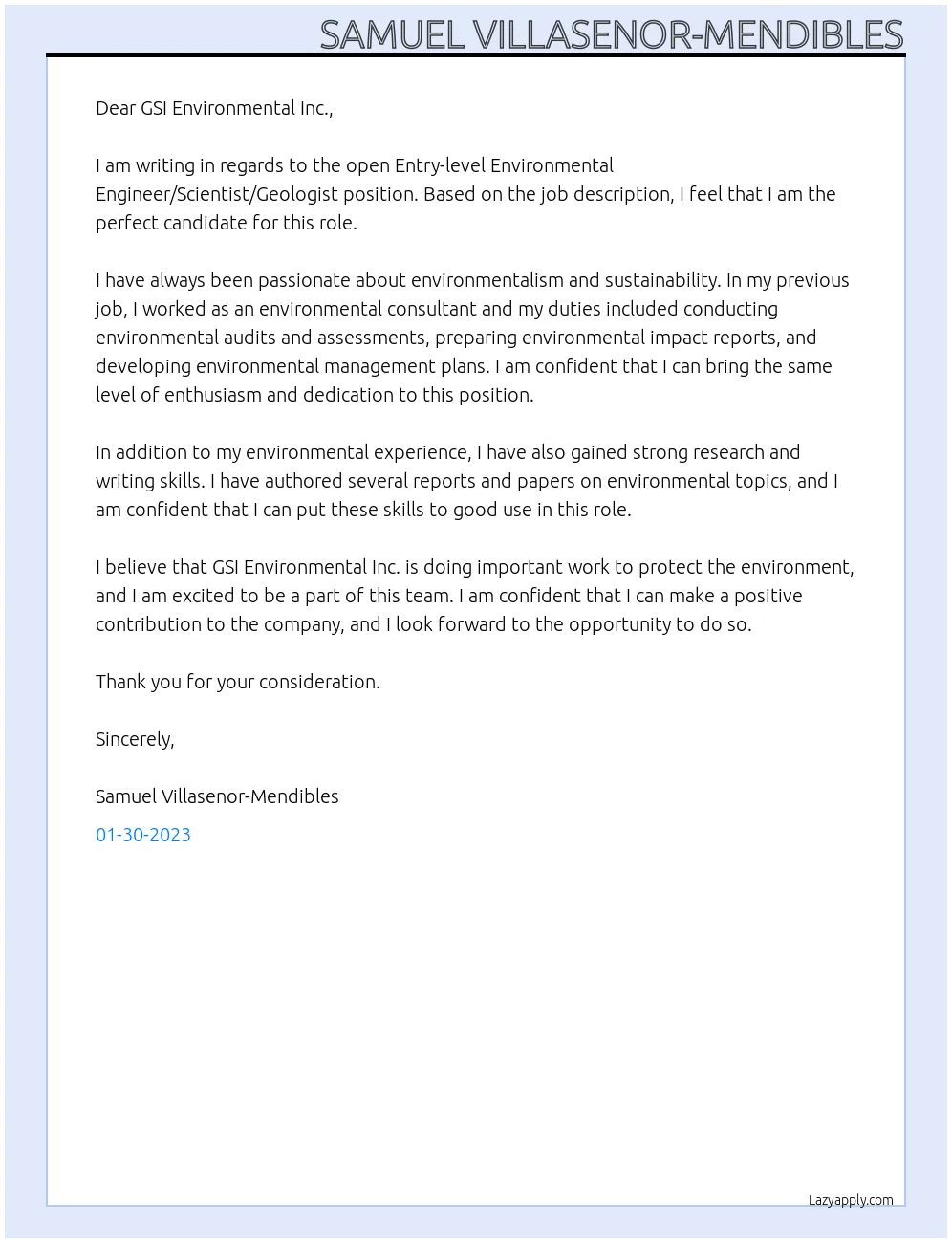
Ensure your cover letter is free of errors by proofreading carefully.
